Control review: So good, you might finally stop asking for Alan Wake 2 - thompsonpencier
A fake Christmas tree, undecorated. A stack of letters. A boat wrought wish a swan. A "Get over soon!" balloon, inflated and drifting. A brake light. The exhibits go on and on down the hallway, clean room after white board, identical but for the everyday physical object at the center of each one and only. Normal, run-of-the-mine objects—at the least to the casual observer. But that go-cart is emitting smoke, and you could swear you hear quacks echoing from a fewer rooms down.
You'atomic number 75 at the heart of the Federal Bureau of Control, and these aren't exhibits—they're cells. Each contains an Altered Token, some of the most dangerous objects on the planet. And, uh,some of them are missing.
4 8 15 16 23 42 ?
Operate is the culmination of terminated a decade's experiments.Control is the game Remedy's been trying to make since at leastAlan Wake, or maybe since the studio was founded, integrating lessons scholarly from apiece project along the agency.Control is the halt that might get people to stop asking for anAlan Wake 2.
Controlis so damn good.
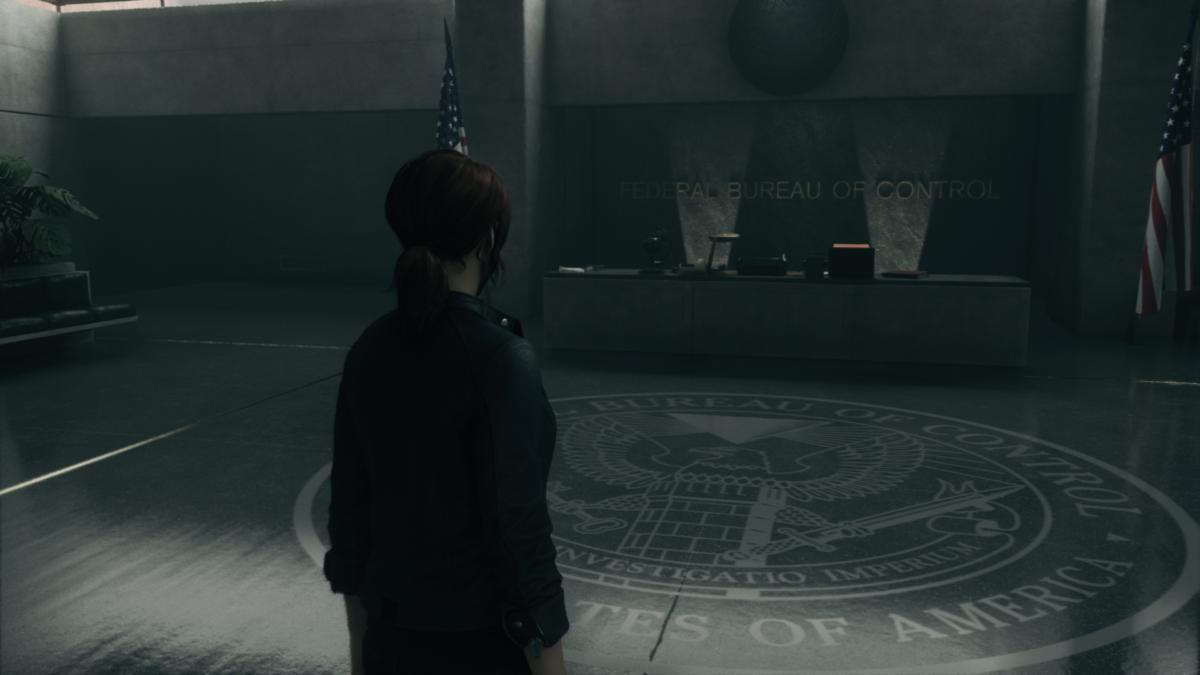 IDG / Hayden Dingman
IDG / Hayden Dingman And I wish I could leave information technology at that, becauseControl is as wel borderline unreviewable—even more so than its sack-day compatriotAncestors: The Humans Odyssey,which is truly saying something.
Information technology's not thatControl is spectacularly experimental or anything of that sort, because it's not. This very is the ur-Remedy, the power point whereMax Payne, Alan Wake, andQuantum Breakmeet. Third-person action game? Lots of story-adjacent collectibles? Paranormal themes? Affinity for live-action video? Billet doux to brutalist architecture?Check checks all the unnumberable boxes I've concern colligate with Repair over the geezerhood.
There are only fewer caveats.Alan Wake for example tells a fantastic story, but its break-and-daddy gunfights were a job even out at the time, andQuantum Break's hybrid gritty-and-television arrange left both halves impression somewhat compromised.
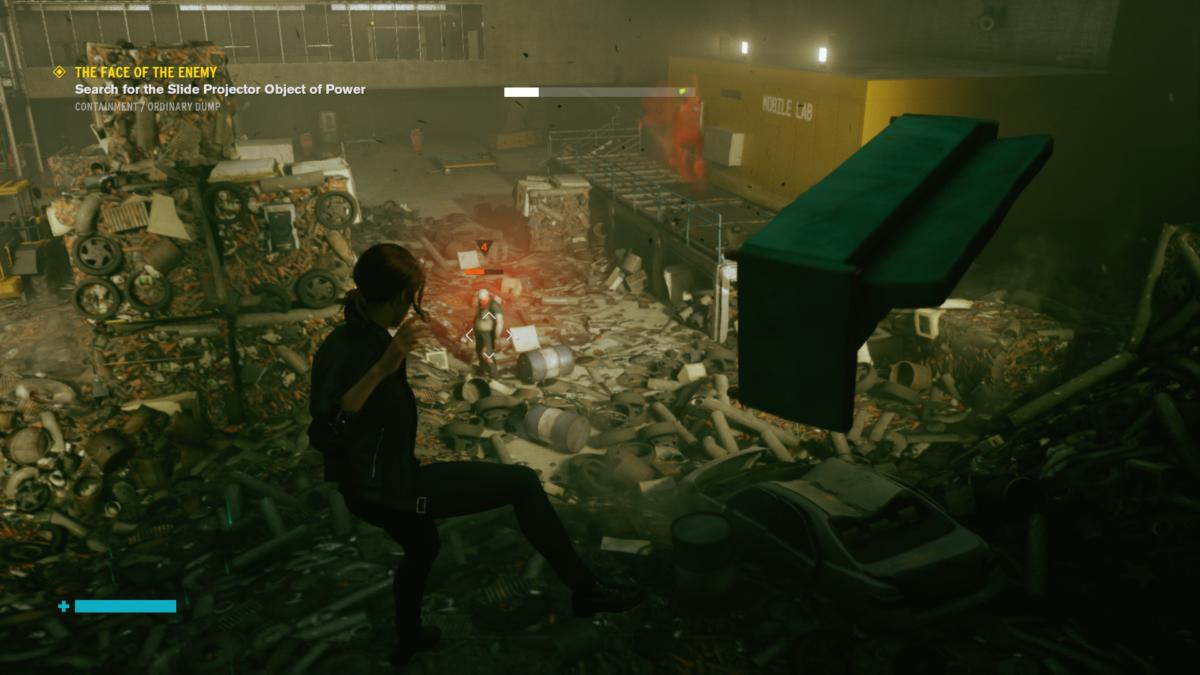 IDG / Hayden Dingman
IDG / Hayden Dingman Manipulate is first gear-and-foremost a fantastic ordinal-person action game, the likes of which Repair hasn't really made sinceMax Payne 2. You'rhenium a force of nature, ripping chunks of concrete from the wall to shield yourself, then catapulting into the air and blasting your makeshift barricade out into the surrounding enemies, finish off one with a prompt headshot and another with a desk picked up and thrown from across the room.
Supernatural abilities are your primary weapon for the most part, especially telekinesis. You can pick up enemies and throw them into walls, throw walls into enemies, even up grab rockets retired of the air and redirect them. It's a magnificent ballet of death, easy to understand and devastating to behold.
Your gun is a small scourge, but still pretty creative. Dubbed the Service Weapon, it can take five forms: Pistol, submachine gun, scattergun, sniper, and grenade launcher. Swapping forms causes the gun to literally reshape itself, with a shared ammo pool that recharges over time.
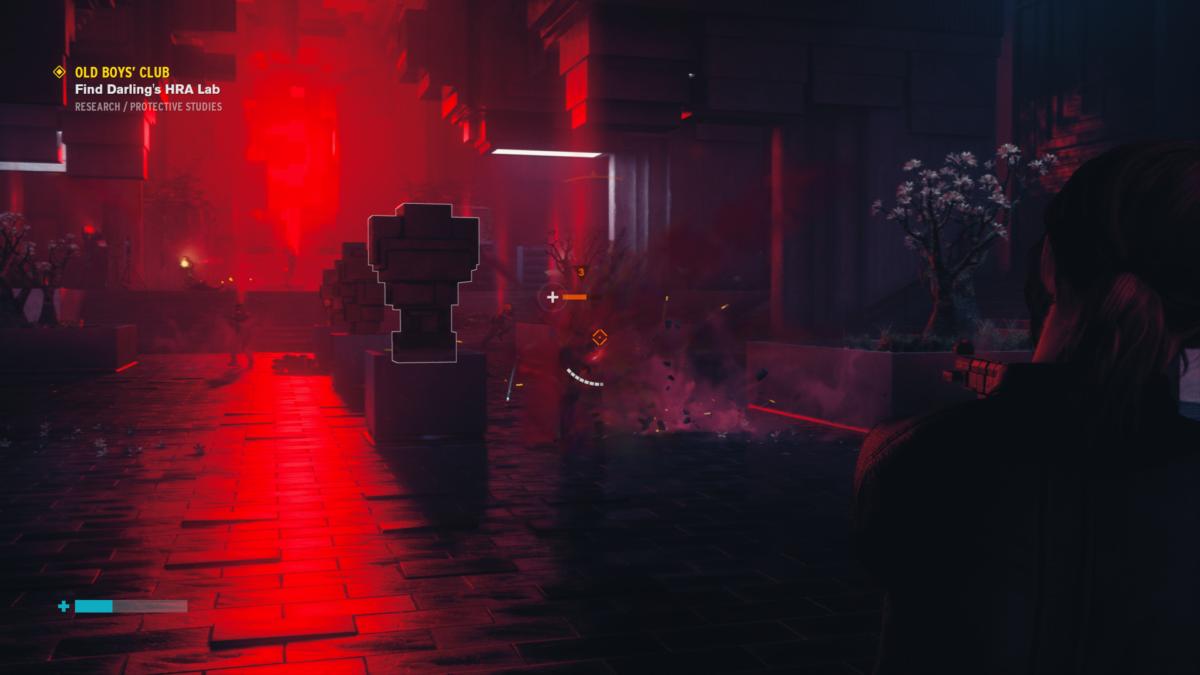 IDG / Hayden Dingman
IDG / Hayden Dingman With both ammo and abilities governed by severalise meters,Assure feels very rhythmic.Scoot, switch, shoot, have. It makes theMax Payne comparisons entirely the more obvious, as those games and their use ofMatrix-fashio bullet-time also had a flow that step by step became second-nature, and never wore thin symmetric once you'd internalized the top-quality strategies for any granted engagement.
I wish the weapon mods you collar were more absorbing. They're by and large of the "Increase a trait by an insignificant percentage" mold, and completely randomised—which as with most randomized loot, renders them vaguely meaningless by the end of the game. But that's a small nitpick in an boilers suit amusive framework. Very entertaining. I can't try that sufficiency.
Writing remains Remedy's specialty though. Much density of writing, so many another layers, and so a couple of of them cushy to explain.
You play as Jesse Faden, an ordinary civil who one Day wanders into The Oldest House, headquarters of the Federal Bureau of Control. Hither's the catch: Jesse shouldn't have been able to get into The Oldest House primarily. People aren't supposed toget laid well-nig The Oldest House, and anyone who doesn'tknow roughly The Oldest Sign arse't find it. Not only that, but the Government agency is presently in lockdown, which should've ready-made The Oldest House doubly inaccessible.
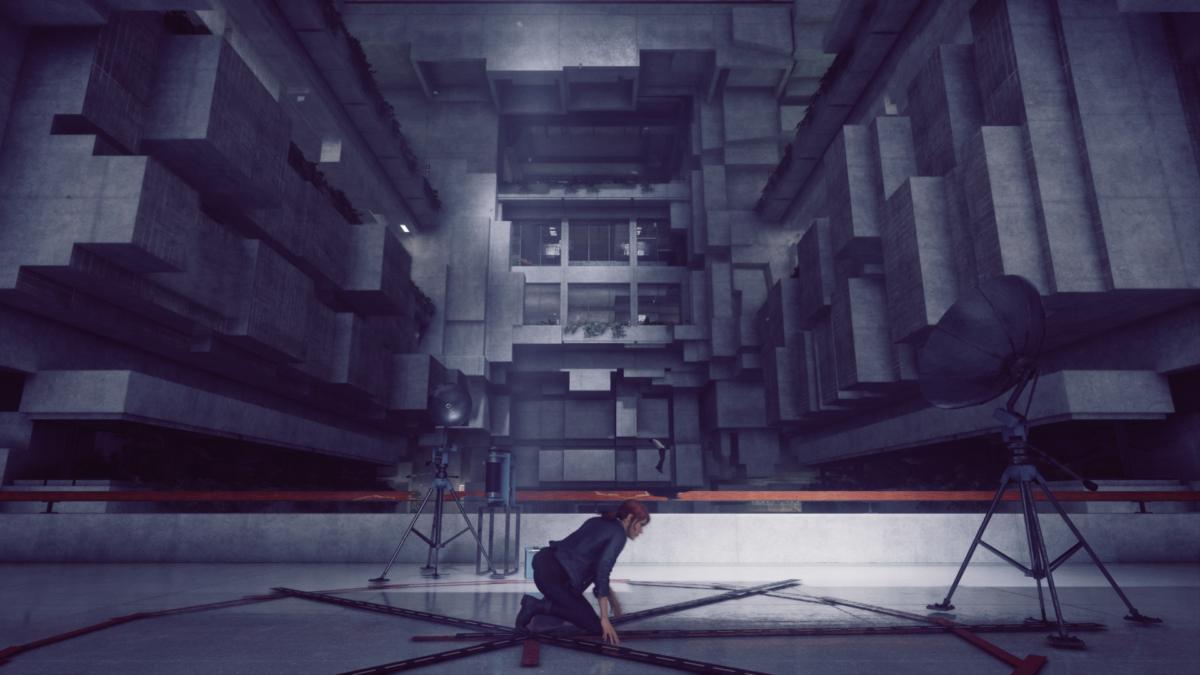 IDG / Hayden Dingman
IDG / Hayden Dingman She's capable to enter though, and sets just about restoring order. The Bureau's come through vulnerable by an alien entity dubbed The Hiss, so named because IT propagates person-to-person through some rather barely-sounding whimper. Jesse seems immune though, and is able to struggle it binding and explore The Oldest House in the summons.
And for a age The Oldest House is the star. We took a viewControl's Research Spirit level back at GDC, and I fell in love with the odd inside information. There was the Ashtray Maze, a labyrinth that reshaped itself as I wandered through it, inevitably major back to the rootage each time. At that place was Audio Lab #2, the existence of which understood an Audio Science lab #1 if simply I looked hard sufficiency. There was a weird mold-ridden cellar, site of an experiment ostensibly gone harmful.
These and different locations make exploring The Oldest Menage a joy in itself. You never very know what the hell you'll find around the next box. Maybe information technology'll be a boring place full of filing cabinets and some abridged plants. Maybe it'll be a soundproof room filled with dozens of static-filled TVs. Perchance it'll be an incessant void, bookended by close concrete doors.
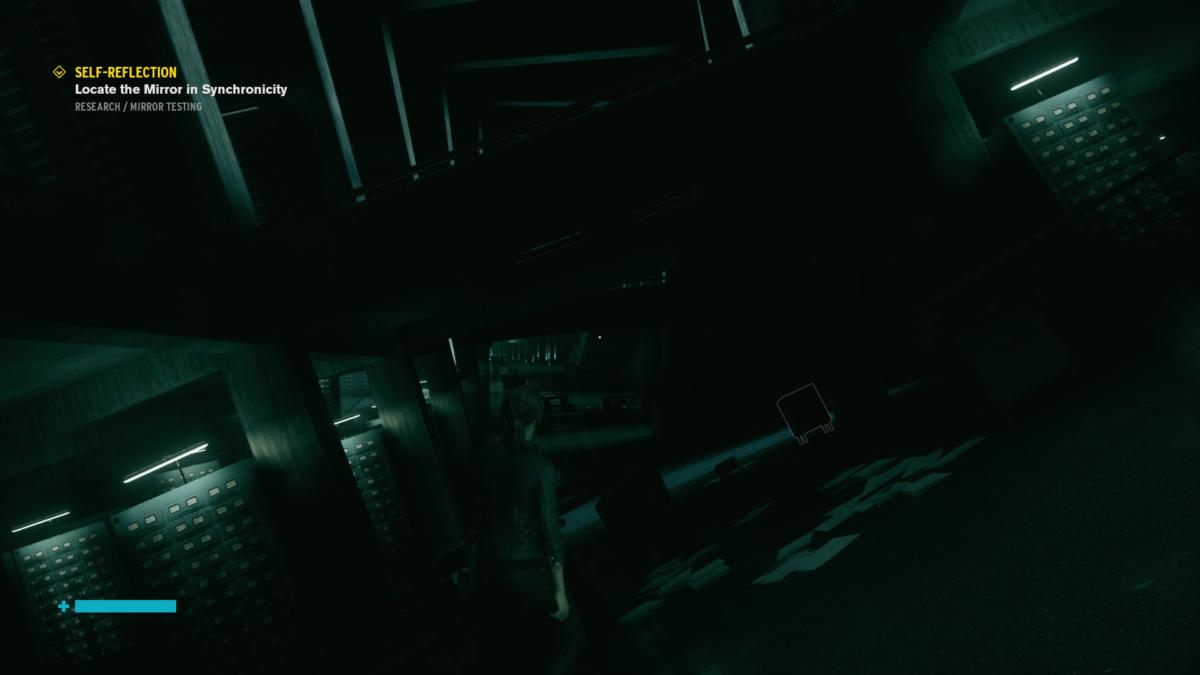 IDG / Hayden Dingman
IDG / Hayden Dingman Control begs you to wander. Some locations are essential, but many exist only to flesh out the Bureau's background, to give the player more windowpane onto this planetary. And thereto end,Control is filled with collectibles.
Simply put, they'ray the best collectibles I've ever seen. Much item the Bureau's work out with Altered Items, everyday objects that have been imbued with special powers. Others delineate what happensbefore the Bureau finds Altered Items, the ways they torment unsuspecting communities.
Communities like say Bright Waterfall, Washington. You screw,for example.
My favorite though are recordings of the enigmatical (and charismatic) Doctor Casper Beloved. These are Remedy's best live-action videos to-date, each a faux-informative telecasting about some facial expression of the Federal agency's search. Unsexed Items, Objects of Mightiness, Changed World Events, The Instrument panel, the Service Weapon system—Control's world is weird, but Darling's presentations ground it, pee the supernatural feel deceptively normal.
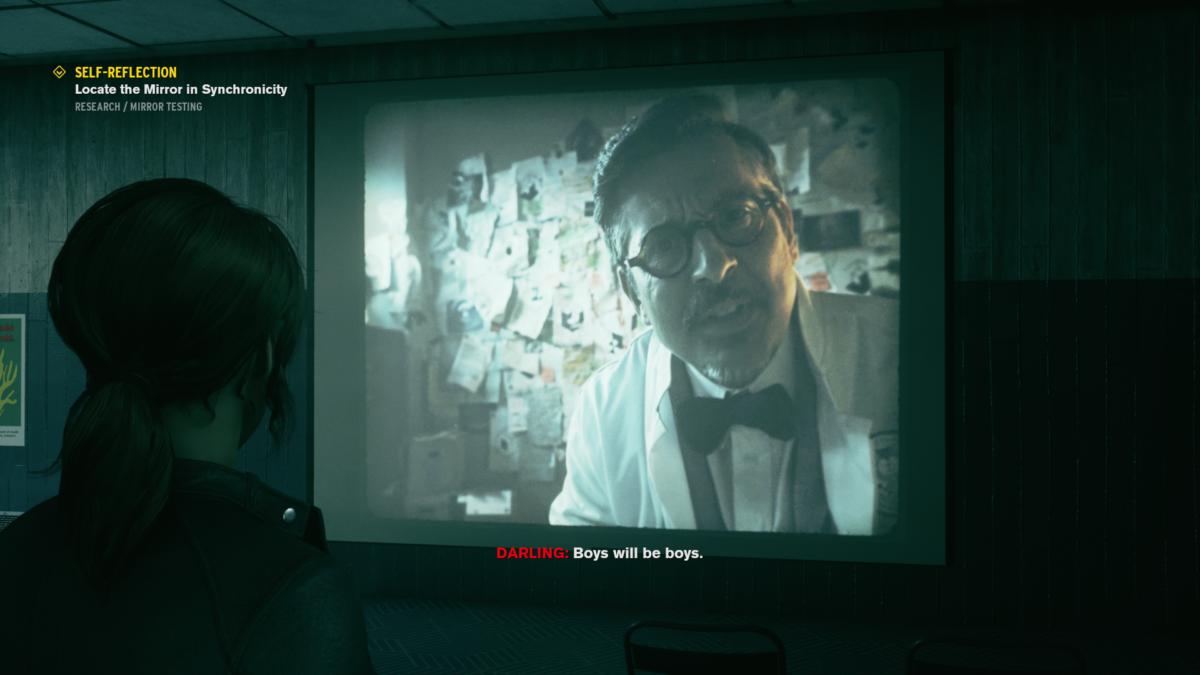 IDG / Hayden Dingman
IDG / Hayden Dingman Are collectibles a crutch? Yeah, sure. I said as much when reviewingQuantum Conk out, and it'd be wrong not to reiterate the same here.Mastery's collectibles finger more justified though. They're not garbled around in weird places, nor do they lean to take the form of ultra-convenient documents that happened to get left out. They're enquiry that could conceivably be left out, or in the case of Darling's presentations, film reels that gaming on in-gage projectors and TVs in appropriate locations.
It's non a perfect solution, but it feels faraway less distracting than it has in past Remedy games. Core story information is generally conveyed in ways the instrumentalist can't miss, through conversations and cutscenes, and I didn't find like I was going out of my way to find collectibles—but then again, they're so well-executed I would've hunted them down regardless.
Anyway, exploring The Oldest House sustains the big majority of the plot. Through the final stage, you're still accessing new areas and find deeper and darker secrets about the Bureau's operations. The pacing is excellent, aside from a few unenthusiastic side missions.
And if I sustain whatsoever complaints, it's that I wish in that respect was more to get along outside the main story.Control is ostensibly an open-world game, but gives you little rationality to revisit places you've been. The Oldest House is enormous, and a fortune of IT is just set-medical dressing.
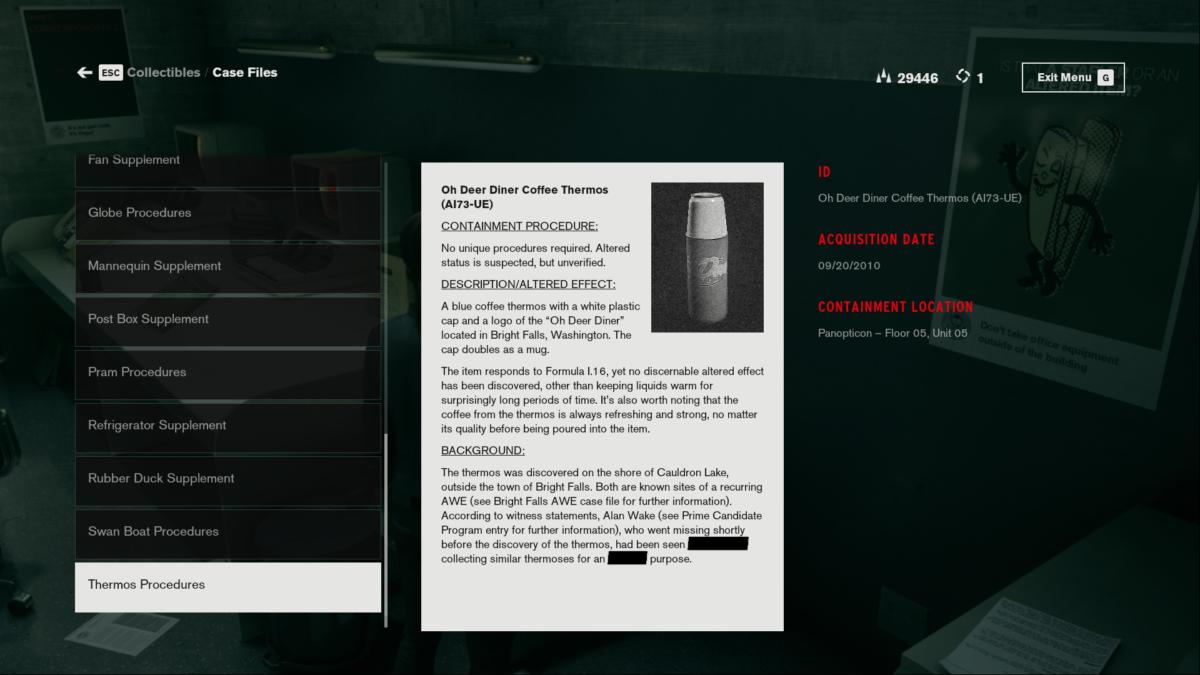 IDG / Hayden Dingman
IDG / Hayden Dingman Jesse's fib sustains forward momentum throughout though, which I'm distressed to whine astir. And it's great, in a way that's very reminiscent of Jeff VanderMeer'sGrey Reach Trilogy and some other Virgin Supernatural genre fiction—meaning the story doesn't so untoldresolve As very much like it justimplodes. If you desire answers fromControl? You'll get approximately, but not entirely. Not even close.
I imagine an expansion is on its manner, and in a way this feels like a repeat ofAlan Viewing, where the main story wrapped up but a more fulfilling ending came after going.Control seems wish information technology might go the Sami focussing.
That doesn't detract from what's Hera though. I loved jolly much every moment withControl, and find it sad I've seemingly unclothed all The Oldest House's secrets. Few spaces make felt so comforting to explore.
RTX showcase
Before we go, information technology's also worth mentioningControlis a tour Diamond State impel for beam-trace. Get into't get me wrong, information technology looks great with RTX disabled as well—though the edges of objects tend to smudge, same asQuantum Break. Not sure what's improving with that, whether it's a stylistic choice.
This ISN't one of those spot-the-difference RTX implementations though, where you're peering at screenshots trying to work out whether it's flatbottom enabled. Time period reflections are amazing, specially inControl 's glass-pregnant hallways. Being able to witness Jesse's reflection in television screens, on posters, in The Oldest House's reveal cases, and so on—it sounds insignificant, and Eastern Samoa far as thepun is obsessed, information technology is. You're not gaining a capitalistic edge from RTX.
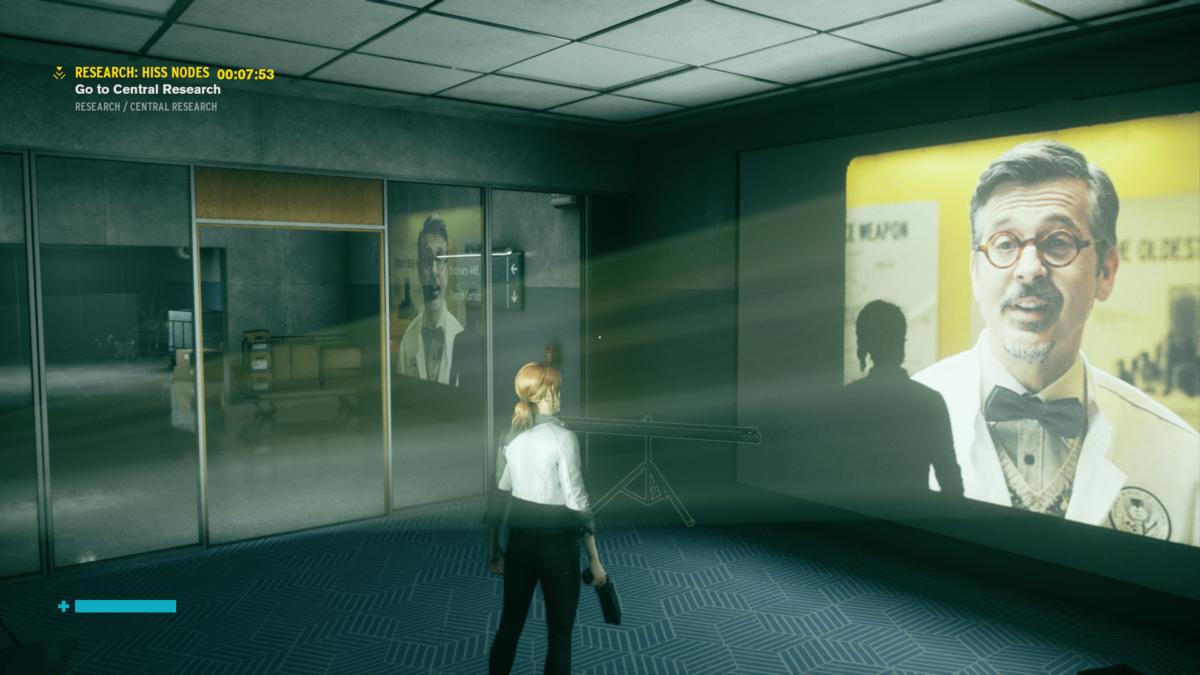 IDG / Hayden Dingman
IDG / Hayden Dingman RTX enabled…
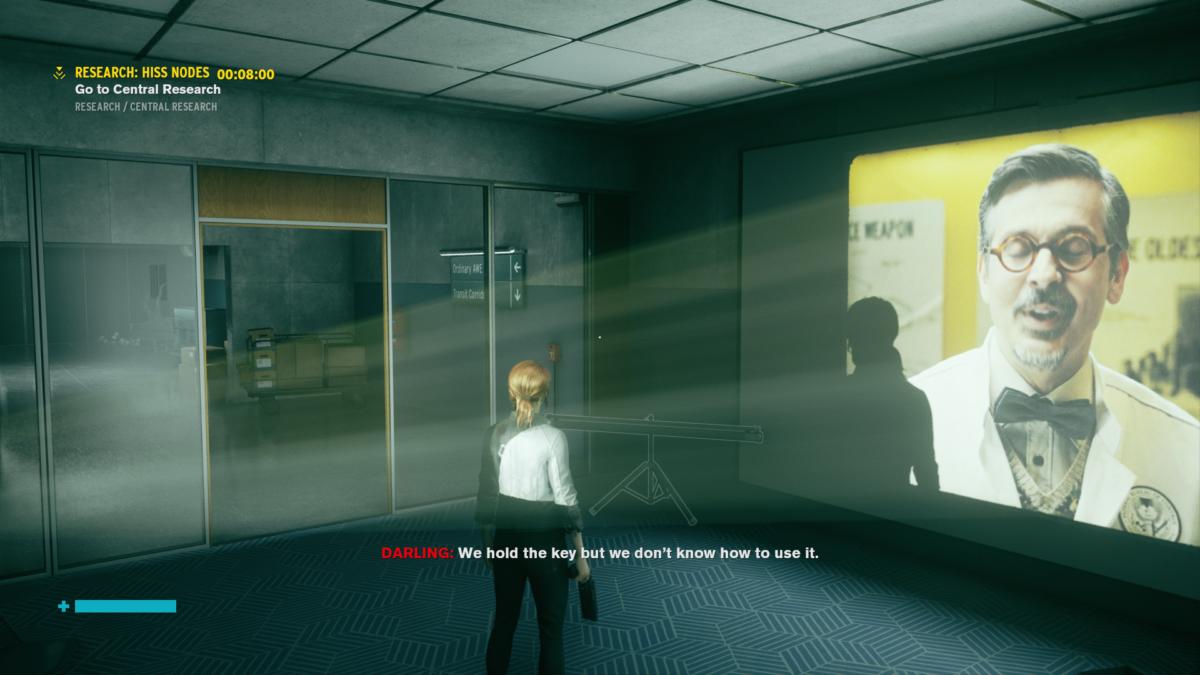 IDG / Hayden Dingman
IDG / Hayden Dingman …versus injured. Notice the want of reflections on the glass wall, and to a lesser extent detailed reflections on the floor in the outer room. (Check out the video up top for genuine-time rearward-and-forth testing.)
It's an additional and subtle bit of realism though which increases the contrast between The Oldest Star sign's boring government office frontal and the supernatural elements at war within. And uh, if that's non enough? Well, it just looks all-fired cool.
IsVerify the game that sells you on an RTX card? Probably non. They're still expensive, and one game doesn't apologise that cost—especially when the effects are so tangential to the core loop. That same, it feels care there's in conclusion a game Nvidia sack full stop to and say "Figure,this is why RTX is a key part of later artwork technology" and populate willget it. It's a pi of a lot more impressive thanField V's puddles, or evenSubway Exodus's pitch-black night environments and lighting tricks.
Bottom line
In any case, that's entirely secondary to the real peak:Control is one of 2019's best, handily. Less experimental thanAlan Wake IslandorQuantum Wear,Control nevertheless manages to combine the high-grade aspects of Remedy's past successes into something that feels new and inspired, and plays better without sacrificing story profoundness.
I can only hope The Oldest House has further depths waiting to be explored, because it'll be a attaint if this is whereSee ends. Past again, Remedy's willingness to move on and try out anew is what brought America here in the first set up, so if that needs to happen again? That's the price you pay off to keep apart being surprised.
Source: https://www.pcworld.com/article/397948/control-review-so-good-you-might-finally-stop-asking-for-alan-wake-2.html
Posted by: thompsonpencier.blogspot.com


0 Response to "Control review: So good, you might finally stop asking for Alan Wake 2 - thompsonpencier"
Post a Comment